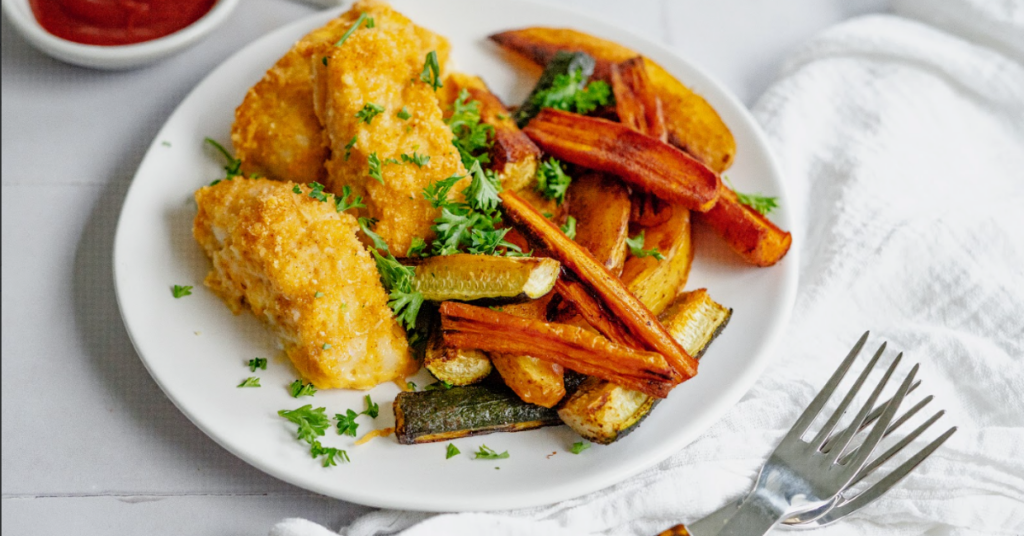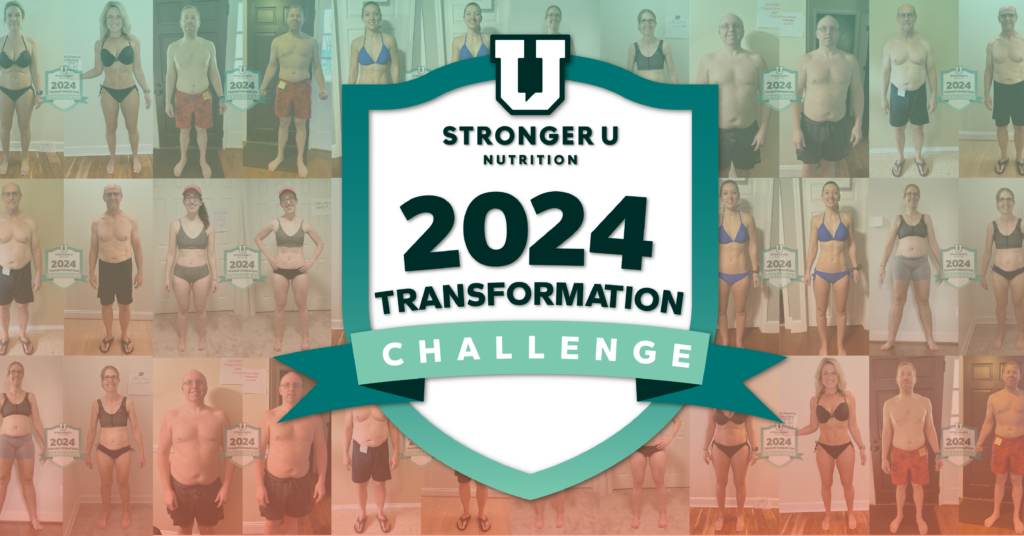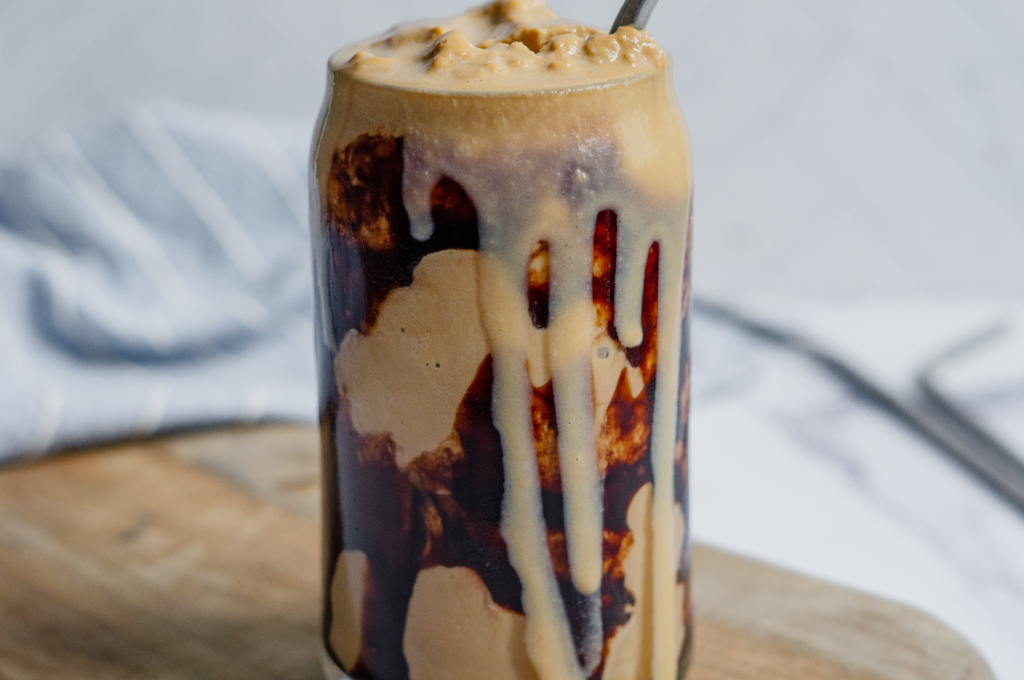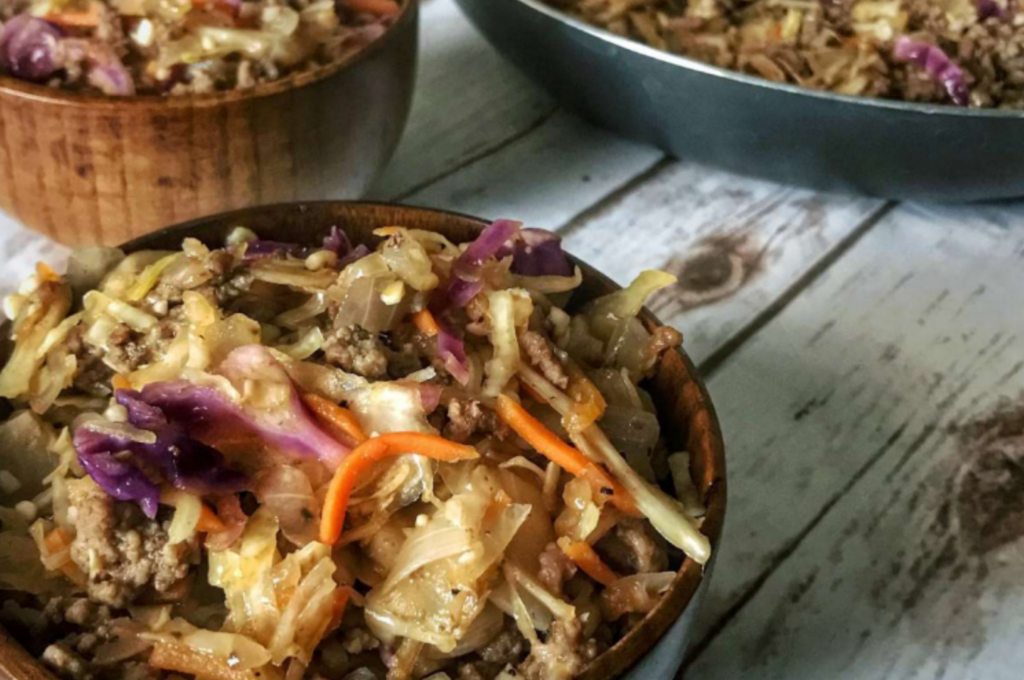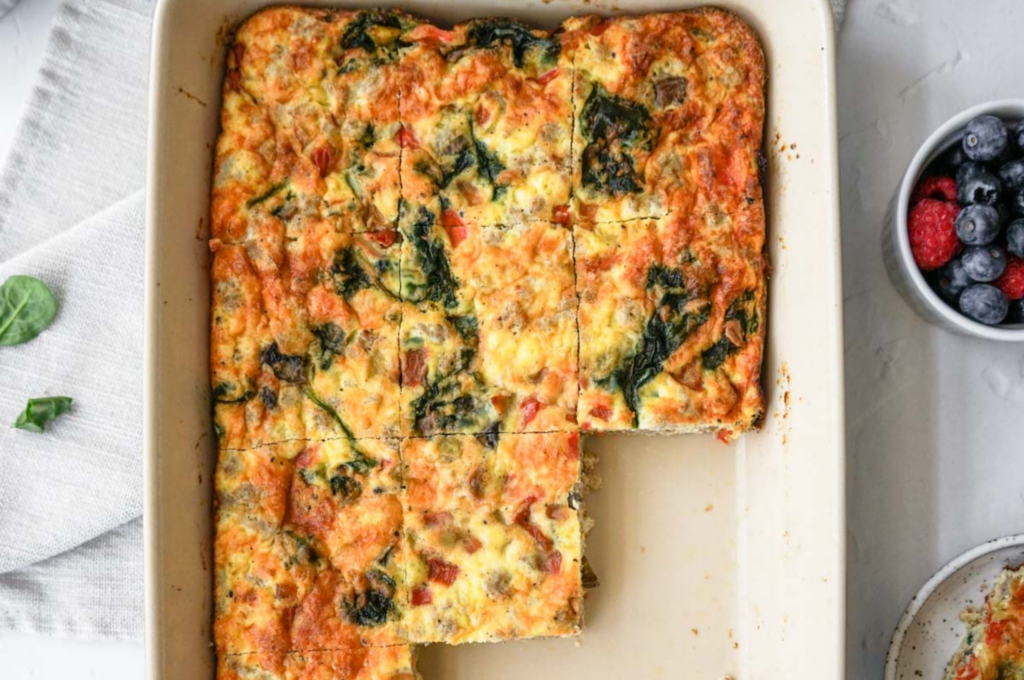You know how sometimes you like to avoid Facebook because all your friends and family are getting into political arguments? Sometimes I like to avoid Facebook because all of my peers are getting into arguments about nutrition. Seriously, if you thought people were bad when they argued about health care you should watch them argue about gluten.
If you’ve spent any time on the Internet, you know what I’m talking about. Whether it be some new headline that’s grossly misreporting some new study or that one friend who lost 78lbs in 3 weeks after they tried that wrap/shake/pill/insert-product-here, the schtick is always the same.
Someone brings something up, someone tells them they’re wrong, and round and round they go for 300 comments, while lots of other people join in on both sides, and even more sit on the sidelines with their Michael Jackson popcorn gif, randomly liking some comments.
In the world that Stronger U lives in this sort of thing happens all the time. It’s not limited to the most extreme cases, either. There can be an argument that can be made for trying to save someone from wasting their time by telling them that their detox pills might not actually be the answer to their weight loss woes. But that’s not the kind of thing that many of our peers, people who agree about far more than they disagree, argue about.
Instead, we argue about organic foods, bread, carbs, certain kinds of vegetables, other kinds of fats. Never really reaching a clear conclusion, and rarely changing anyone’s mind. But worst of all, usually disregarding the most important question of all:
Does doing this thing actually help someone?
I’m certainly not about to go wade into some long Facebook comment thread to debate the merits of GMO’s or white rice vs. brown rice. I think there’s value in trying to find nuance for discussions like this. I think there’s value in recognizing where some of those things that you’ve heard are nutrition myths might actually be helpful.
So here’s me being a contrarian and stirring-the-pot and talking about nutrition myths that might actually be true. Though, the more important and overarching point to be heard here is that there’s an incredible amount of nuance to what winds up finally working for someone. So above all else, when talking about diets and most other things, this piece serves as a reminder for Cardinal Rule #1: Don’t be a douchebag.
I don’t care if you’re fired up because you just lost 100lbs or if you’re a Coach with 10 years of experience under your belt. The first rule of talking about diets with someone is that if you’re setting out from the jump to make them feel dumb, tell them why what they’re doing is stupid, or looking to correct someone before they’ve even had a chance to give themselves an honest shot at something, just stop. It’s not your place and it’s not your time. That’s especially true when we think about how much nuance and variability there is to what works for people. So with that in mind, let’s look 4 nutrition myths that might actually be true.
Eating only organic food.
People have lots of things to say about organic food. For many, eating organic isn’t just a preferred style of eating, it’s an identity. It’s a thing that we can hang out dietary hat on in the hopes that what we’re doing is both good for our health and our waistline.
It turns out that conventionally grown foods have plenty of nutrients, do a fine job of supplying us with the vitamins and minerals that we need to function, and don’t expose to insanely high levels of pesticides. In fact, organic foods might expose us to more pesticides than conventionally grown food. There is also some evidence showing that those of us who do see that something is organic are more likely to wind up overeating that very food. Why? Thanks to a phenomenon known as the health halo, when we see that food is organic we almost always assume that food has fewer calories.
But that’s not the point here and I’m certainly not here to poke a hole in your organic balloon. Hell, I’m on your side! I’m on team organic for this one.
I like it when people decide they’re going to eat organic because when that sort of sweeping decision gets made, and I mean honestly made, most people actually do wind up making better choices more often than not. They start buying higher quality fruits, vegetables, and lean proteins. More importantly, they probably start buying more of those foods than they were before they were an organic evangelist.
That’s not because there’s some kind of magic associated with organic foods. No matter what the guy at the butcher counter in Whole Foods told you, organic food isn’t the solution to all of our problems. Doing this works thanks to the fact that when people make the sort of sweeping change to buy all organic they’re just likely more health-seeking individuals now. They’re probably buying more vegetables, fruits, and lean meats. They’re definitely making more of their own meals, and they’re probably starting to put more care into preparing their food on a daily basis, and for many people, just the virtue of doing that can help reduce their daily calorie intake.
Of course, notice that each time I’ve talked about this I’ve wrapped the point up in nuance by using qualifiers such as “sweeping”. That’s an important point to understand here because in the examples above I’m certainly not talking about Aunt Linda who decided she was gonna start buying organic apples. That might be good for something, I guess. That something being it probably makes Aunt Linda feel better about what she’s doing. But in order for buying organic to really start to make sense and really start to influence a lot of your decision making, I’m talking about making the sweeping and complete choice to make everything you buy organic. Hard, I know. But that’s the point.
Quit eating at 7pm.
For years I fought this myth when I was a Personal Trainer. My clients would proudly tell me how they stopped eating at 7pm, 8pm, or whatever arbitrary time they chose. Like an arrogant young jerk who knew it all I’d tell them that didn’t matter at all and that they shouldn’t worry about that. All the while, talking about how much I loved fasting, not seeing the irony in that contradiction whatsoever.
Well, it’s a few years later and while I still personally love fasting. I also love it when people set hard rules like that for themselves. In my experience, the people who set those boundaries for themselves also know that boundary is important because it sets up as a nice additional set of guardrails to guide their decision making. It keeps them out of trouble, or more accurately for me: keeps me out of the pantry while I watch the dinner party episode of The Office for the 10th time.
Deciding that it’s time to stop eating at 7pm each day is a perfect example for one of those boundaries working in action.
There’s nothing magic about 7pm. It’s not like your diet is forever broken if you decided that one day you were going to stop eating at 7pm and the next day you actually finished at 7:17pm. The magic is found in the fact that you’re someone who set up their own boundaries for themselves and then stuck to those boundaries. That’s all having a hard stop on the time you’re done eating is doing. It’s capping off the day to ensure that there actually is a time when you’re no longer taking in calories and that point isn’t just dictated by when you’re going to sleep. This is important because it’s an extra layer of accountability to keep you from eating too many calories on a daily basis.
For many people, finding a hard boundary for when you want to stop eating works well as that last layer of accountability. Especially when you’re in a cutting or weight loss focused phase. Mice certainly aren’t humans, but studies have actually shown that when mice are in a calorically controlled diet they prefer placing their own temporal limit on when they’ll eat and when they won’t eat.
Anecdotally, I can say that fits a lot of my coaching experience. Dieting is hard. It takes a lot of energy and willpower to stick to this thing on a daily basis. How could it not? Dieting is willfully starving yourself with less food than your body needs for a significant period of time. That’s bound to get hard and as we’ve talked about previously, our world isn’t exactly set up to allow you to do this all too easily. That’s why finding extra steps, like placing your own temporal barrier, or hard stop, on when you’re eating works so well. You’re building in just one more redundancy to help ensure you’re behaving in the way you want to, and all too often success looks like finding novel ways to get out in front of our future-selves to keep that future version of us from screwing things up.
Eating 5-6 small meals each day.
This one is heavily steeped in bodybuilding lore, and there are still a number of bodybuilders who like to practice this principle on a daily basis. While we know that eating 5-6 small meals each day doesn’t stoke the metabolic furnace or cause your metabolism to rev up like we once thought, it’s still a good decision for plenty of people.
Why’s that?
First, let’s be sure we cover the obvious. When people eat out of larger portion sized containers studies show that they’re more likely to overindulge when eating those foods. A plan that sets someone up to eat 5-6 small meals in per day circumvents this weird little psychological loophole by essentially removing the possibility of their being large containers of food to go unchecked.
You don’t have to be someone who dons a white lab coat to see the more applicable overarching point to the paragraph above. All you need to do is think back to that time that the restaurant messed up and you got a larger order than you expected. Like the last time I was at a Cracker Barrel, America’s General Store, somewhere on one of our great Interstate stops, I asked for some hashbrown casserole. It was lunchtime, it was close to a holiday, and it was perfect hashbrown casserole weather. The waitress misheard me and brought me a large serving of hashbrown casserole. At least 2x the size of the normal side. Now, I love me some casserole just as much as the next person, but I was not signing up to get double the casserole that I planned on. You know what I felt tempted to do the whole time that extra heaping of casserole was sitting at my table?
Clean the plate. Because that’s the obvious move, right? It’s there. Might as well go for it.
That’s how portion sizes influence our thinking and decision making. When confronted with a bottomless pit of Dr. Pepper we’re far more likely to stop because we hit the end than because we’ve consciously decided we’ve had enough.
Which is exactly why 5-6 small meals a day can be a good idea. The people that do this thing, much like the people who buy all organic, tend to actually start putting more care into prepping and planning their meals. For so many people out there, just that very act can be something that helps them clean up much of their decision making.
Just by the virtue of having to eat 5-6 meals in a day, someone has to start getting used to prepping and planning their meals more regularly. They become more comfortable with putting more time and effort into the food they make on a daily or weekly basis. Which also means that person is going to be cooking more of their own meals. That’s not even factoring in the fact that when most of us think of prepping that many meals the natural mental picture we fall back on is someone filling their Tupperware containers with lean protein, rice, and veggies.
Very few people have gone wrong eating mostly those things on most of the days they live. Is it the most accurate strategy in the world? Probably not. Is it a strategy that takes care of the big rocks first before worrying about the minutia? You bet it is.
Clean eating, paleo, and veganism are all awesome.
Yup. I went and said it. You’re into clean eating? Good! Go for it. Paleo? Have all the paleo food your ancestral heart desires. You’re into veganism? More power to you. Go crush those veggies like your lipids depend on it.
Know why I feel that way?
Because most people who start eating this kind of way tend to improve their eating habits by simply following any one of these dietary ideologies. Each and every one of the above is a marked improvement from eating the typical standard-American-diet, and that’s a fact that we can’t really argue with.
All of the above dietary ideologies do a good job of limiting foods that contain things like:
- Refined carbohydrates
- Added fats
- Added sugars
Finding a diet that removes most of those things isn’t a bad diet. It might not be the best diet for a particular individual in the long-run, but it’s not a bad diet. Therein lies the real point:
Many of the restrictive diets that we hear about get demonized for this reason or that, or people sign up for each and every January are all fine options for some people. They’re not fine options for all people, but they work well for some.
Finding a dietary approach that can reliably work is one of the more difficult things that we run into in the modern world. Everyone has a book to choose from, everyone has a plan that they love, and everyone has an aunt/cousin/daughter/brother/sister that saw success with this ONE plan that you just absolutely have to try. It can make feeling like you actually want to pay attention to your health and wellness like you’re walking through a minefield of sorts. A minefield where nobody ever stops giving you their opinion on what you should do and how you should behave.
That’s exactly why we put this list of nutrition myths that are actually true together. To point out the nuance that comes along with attempting to change who you are and how you behave through food.
Taking on a challenge like this is one of the more challenging things just about any of us will ever accomplish in modernity. It’s actively working against our world and the environment our world has built for us. And when we’re taking on something that hard and that trying, it makes a lot of sense for there to be a lot of different things that actually wind up working. After all, there are different strokes for different folks.
So you might have plenty of friends who are trying those things out this year. If you do, don’t berate them for trying out something new. They’re making an honest attempt at improving their health, and that’s something that shouldn’t be shamed. No matter if it breaks with what you practice. Even if they’re dumping three sticks of butter in their morning coffee. They’re trying. They’re attempting. And most importantly: they’re learning. Whether or not you can see it.
The best part? If you’re a good and supportive friend or family member, if that person winds up falling off the rails, they’re far more likely to approach you about what has worked for you, and then that’s your golden opportunity to spread the gospel of Stronger U.




